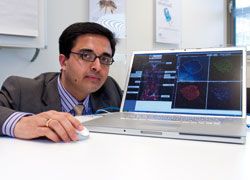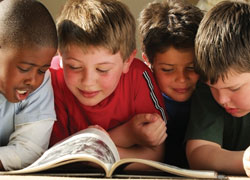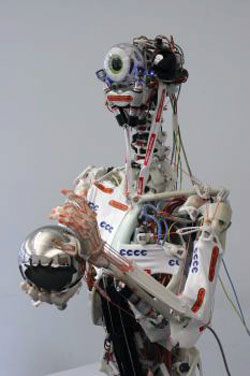Research news review
The past 12 months have seen some outstanding research work happening at Sussex. Here is just a selection.

Sussex tech spin-off will revolutionise cancer prognosis from medical images
TexRAD, a new tech spin-off from the University of Sussex, will market a radical new software that can produce prognostic information from diagnostic body scan images of cancer patients.
TexRAD’s creator, Dr Balaji Ganeshan, Research Fellow at the Brighton and Sussex Medical School and the School of Engineering and Design at Sussex, said: "The specific applications of TexRAD include predicting early response to treatment, prognosis and tissue characterisation.
"Particularly in colorectal cancer, TexRAD could identify earlier patients with poor prognosis and thereby can assist the clinician to modify treatment early and improve patient outcome.
"TexRAD can be integrated without the need for any hardware modifications and can also be accessed via a pay-per-click service."
Dr Olga Strukowska, Consultant Radiologist of the Western Sussex Hospitals Trust (UK) said: "The preliminary TexRAD results were impressive: I was able to identify an invasive breast cancer focus within larger area of pre-operative, non-invasive disease.
"This information, used as an addition to standard morphological assessment, could assist clinicians in treatment planning and optimal selection for sentinel node biopsy, and potentially reduce the amount of two-step breast surgery, which is undertaken whenever an invasive disease is established, not before final histology."

‘Again, again!’ - Why repetition in reading helps children learn more
New research at Sussex shows that repetition in reading storybooks is more likely to lead to a child acquiring new vocabulary – even if it sends the parents off to sleep.
Psychologist Dr Jessica Horst and her team devised an experiment in which three-year-olds were exposed to two new words.
Each word was a made-up name for an unfamiliar object (for example, a ‘sprock’, which was a handheld device used for mixing food).
Over the course of one week, one group heard three different stories with the same new words. Another group repeatedly heard only one of the stories with the same new words. Each book contained drawings of the new objects.
When tested after a week, those who had heard just one story were much better at recalling and remembering the new words than those who had been exposed to three different stories.
Dr Horst said: "What we think is happening with reading is that each time a child hears the book they are picking up new information.
"The first time it might just be the story, the second time they are noticing details of description, and so on.
"If the new word is introduced in a variety of contexts – as happened with those who were read three different stories – children are less likely to focus on the new word."
Genetic cause uncovered for extreme form of dwarfism
Two Sussex scientists have identified a gene that causes an extreme form of dwarfism, known as primordial dwarfism.
The findings shed light on how human body size is determined, and for the first time make a direct link between the copying of DNA in cells and body growth.
Dr Mark O’Driscoll and Professor Penny Jeggo at the Sussex Genome Damage and Stability Centre, together with a colleague at the MRC Human Genetics Unit in Edinburgh, revealed that the gene ORC1 plays a key role in triggering the copying of DNA.
This discovery could open up new avenues of research into how growth disorders occur and offer people with severe growth disorders a chance of better and earlier diagnosis.
Primordial dwarfism is a group of incredibly rare growth disorders that significantly limits growth at every stage of life, from before birth to adulthood, and includes the smallest people in the world.
Without a clear understanding of what causes the disorders, it can often be difficult for patients to get an accurate diagnosis and to provide the best management of their condition.

Professor receives top award for robotics project
University of Sussex Professor Owen Holland is among a team of robotics scientists who were awarded the Royal Academy of Engineering Rooke Medal in June 2010.
The team came together for Walking with Robots, a three-year project that enabled the public to engage with advanced robotics.
Walking with Robots staged high-profile events all over the UK, ranging from workshops for schoolchildren to public debates, exhibitions at science fairs, and even a pub quiz.
The award celebrates the project’s success in promoting the importance of engineering to society through a series of public events funded by the Engineering and Physical Sciences Research Council (EPSRC).